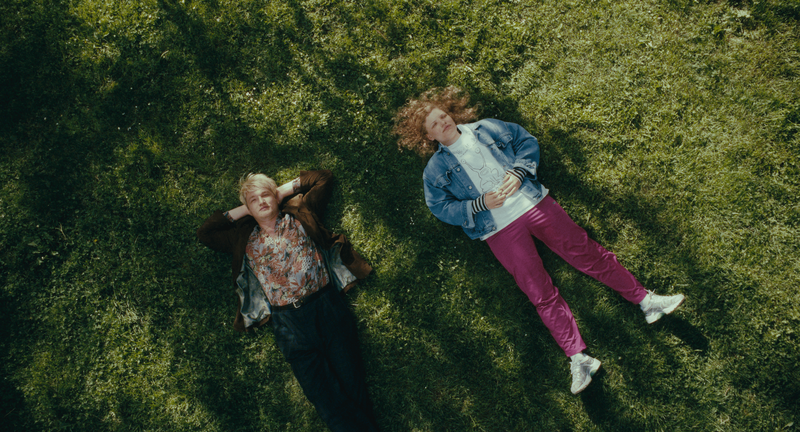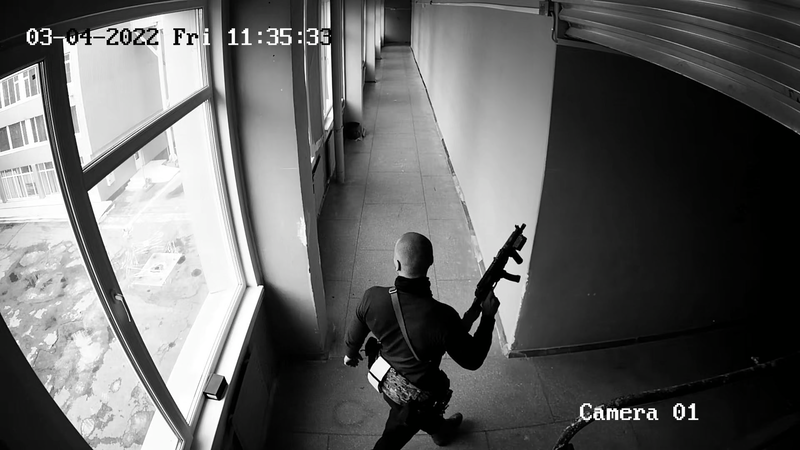
A Reality-Bending Story That Redefines Normalcy
MOVIE REVIEW
How to Be Normal and the Oddness of the Other World
–
Genre: Drama
Year Released: 2025
Runtime: 1h 45m
Director(s): Florian Pochlatko
Writer(s): Florian Pochlatko
Cast: Luisa-Céline Gaffron, Elke Winkens, Cornelius Obonya, Felix Pöchhacker, David Scheid
Language: German with English subtitles
Where To Watch: shown at the 2025 Berlin International Film Festival
RAVING REVIEW: Some stories take audiences on a journey, guiding them from point A to point B with clear direction. Others break apart expectations, immersing viewers in a chaotic, unpredictable experience that feels as fluid as real life. HOW TO BE NORMAL AND THE ODDNESS OF THE OTHER WORLD is firmly in that category, delivering a visually experimental, narratively fragmented, and emotionally resonant exploration of mental health, identity, and the shifting perceptions of reality. Directed by Florian Pochlatko, this debut feature refuses to play it safe, leaning into surrealism, dark humor, and a unique approach to storytelling that challenges the notion of what it means to be "normal."
The film centers on Pia (Luisa-Céline Gaffron,) a young woman recently discharged from a psychiatric hospital who returns to her parents’ suburban home in Vienna. Her transition back to daily life is anything but smooth, as she struggles to maintain a job, navigate the remnants of past relationships, and manage her mental health under society's judgemental eyes. The world around her seems just as unstable as she feels, creating an unsettling but strangely relatable experience in which reality shifts depending on perspective.
Rather than providing a traditional character study, the film embraces an unconventional narrative style that externalizes Pia’s inner struggles through rapid, striking sequences. The editing is deliberately erratic, mirroring her fractured state of mind.
One of the film’s boldest choices is its refusal to pin Pia’s struggles to a specific diagnosis. This ambiguity adds to the film’s layered message about mental health and the tendency to label individuals in ways that often fail to capture the full scope of their experience. Instead of defining Pia by a medical term, the film lets her exist in a gray space—one that feels more reflective of how mental health conditions are experienced in real life, constantly shifting depending on personal and cultural contexts.
The film's surprising use of humor prevents it from becoming too heavy. Rather than treating its subject matter with a constant air of solemnity, the film injects absurdity and comedy, reminding audiences that laughter is an essential coping mechanism even in difficult times. The humor doesn’t undermine the film’s themes but strengthens them, making its messages more accessible while providing much-needed contrast to its heavier moments.
At its core, the film poses a fascinating question: Is true freedom found in structure or chaos? Pia’s time in a psychiatric hospital was highly regimented, offering predictability even if it came at the cost of personal autonomy. On the other hand, the outside world is full of contradictions, constantly shifting expectations and a need for individuals to conform to social norms that are often impossible to meet. The film doesn’t pick a side but rather lets the audience sit with the discomfort of that question, challenging them to consider where real agency lies.
Beyond Pia’s journey, the film also closely examines generational divides. Her parents, Elfie (Elke Winkens) and Klaus (Cornelius Obonya,) are struggling in their way, caught in a world that no longer makes as much sense to them as it once did. The tension between Pia and her parents reflects broader societal shifts—how one generation’s expectations for stability and success don’t always align with the realities of younger generations, who must navigate an increasingly uncertain world. This dynamic adds another layer to the film, grounding its surreal elements in something deeply human.
Of course, this type of storytelling won’t be for everyone. Some viewers may find its abstract approach frustrating, and its refusal to provide clear-cut answers could challenge those who prefer more traditional narratives. The film asks for patience and engagement; for those willing to embrace its unusual style, it offers a uniquely thought-provoking experience.
HOW TO BE NORMAL AND THE ODDNESS OF THE OTHER WORLD is a bold and imaginative film that refuses to conform to expectations. Its inventive storytelling, striking visuals, and darkly humorous approach to serious themes stand out as a refreshingly original entry into contemporary cinema. It may not be an easy film to categorize, but that’s precisely what makes it worth watching—an unpredictable, deeply human journey that lingers in the mind long after the credits roll.
Please visit https://linktr.ee/overlyhonestr for more reviews.
You can follow me on Letterboxd, Instagram, Twitter, and YouTube. My social media accounts can also be found on most platforms by searching Overly Honest Reviews.
I’m always happy to hear from my readers; please say hi or send me any questions about movies.
[photo courtesy of GOLDEN GIRLS FILMPRODUKTION, FILMSERVICES GMBH]
DISCLAIMER:
At Overly Honest Movie Reviews, we value honesty and transparency. Occasionally, we receive free items for review, including DVDs, Blu-rays, CDs, Vinyl, Books, etc. We assure you that these arrangements do not influence our reviews, as we are committed to providing unbiased and sincere evaluations. We aim to help you make informed entertainment choices, regardless of our relationship with distributors or producers.
Amazon Affiliate Links:
Additionally, this site contains Amazon affiliate links. If you purchase through these links, we may receive a commission. This affiliate arrangement does not affect our commitment to honest reviews and helps support our site. We appreciate your trust and support in navigating these links.



Average Rating